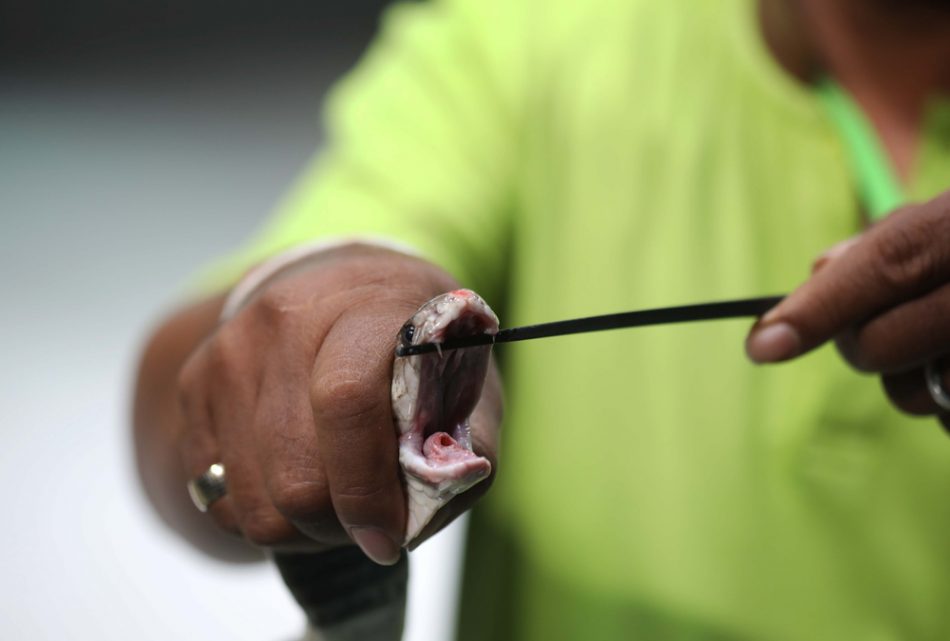Though it is the only antidote to fatal snakebites, antivenom is expensive and time-consuming to produce. This is because traditional antivenom is made by first extracting venom from the fangs of captive snakes, then injecting small amounts of that venom into host animals. These animals produce venom-neutralizing antibodies which are harvested from their blood, purified, and then used to make the life-saving potion.
As you can imagine, this entire process requires a lot of time and abundant resources. And on top of that, antivenom must be administered by trained clinicians at healthcare facilities, which may be few and far between in developing nations where most snakebites tend to occur.
The good news, however, is that antivenom could soon be self-applied right away, on the spot, thanks to a new low-cost technique developed by scientists at the University of Copenhagen.
The new process involves an easily produced peptide. This compound binds with and neutralizes a lethal toxin found in approximately 75 percent of all venomous snakes. So far, lab tests have shown it to be effective against quick-acting cobra venom, but the researchers are confident that it may also work on many other types.
“If it becomes a future product, it will fit in your pocket, and it can be used by anyone, anywhere,” says study lead Brian Lohse. “The idea is that it can be injected using an automatic injection unit, precisely like the ones used by diabetes patients, that is, directly into the muscle or fold of the skin at the site of the bite.”












